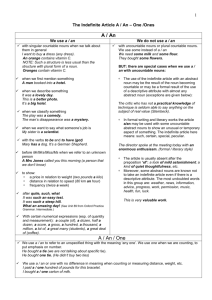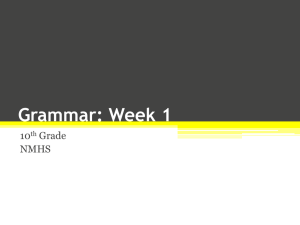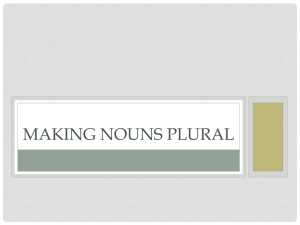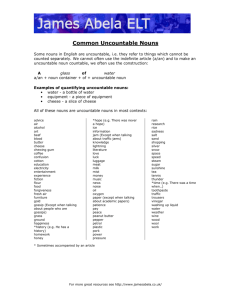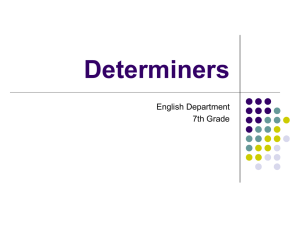Articles Tutorial
advertisement
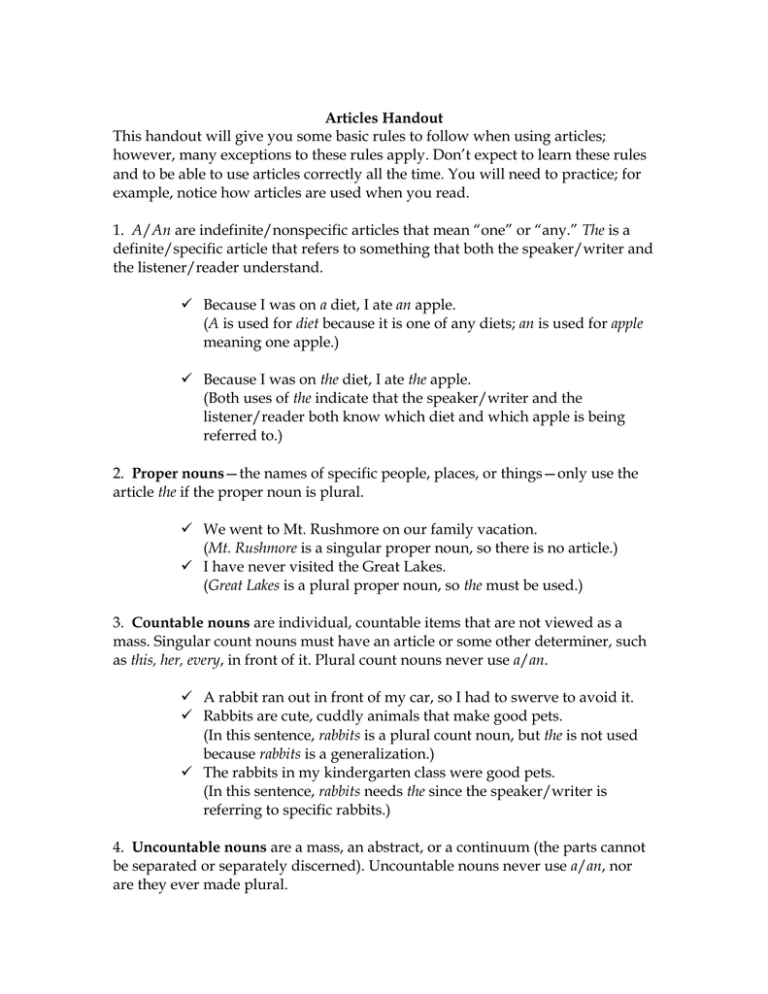
Articles Handout This handout will give you some basic rules to follow when using articles; however, many exceptions to these rules apply. Don’t expect to learn these rules and to be able to use articles correctly all the time. You will need to practice; for example, notice how articles are used when you read. 1. A/An are indefinite/nonspecific articles that mean “one” or “any.” The is a definite/specific article that refers to something that both the speaker/writer and the listener/reader understand. Because I was on a diet, I ate an apple. (A is used for diet because it is one of any diets; an is used for apple meaning one apple.) Because I was on the diet, I ate the apple. (Both uses of the indicate that the speaker/writer and the listener/reader both know which diet and which apple is being referred to.) 2. Proper nouns—the names of specific people, places, or things—only use the article the if the proper noun is plural. We went to Mt. Rushmore on our family vacation. (Mt. Rushmore is a singular proper noun, so there is no article.) I have never visited the Great Lakes. (Great Lakes is a plural proper noun, so the must be used.) 3. Countable nouns are individual, countable items that are not viewed as a mass. Singular count nouns must have an article or some other determiner, such as this, her, every, in front of it. Plural count nouns never use a/an. A rabbit ran out in front of my car, so I had to swerve to avoid it. Rabbits are cute, cuddly animals that make good pets. (In this sentence, rabbits is a plural count noun, but the is not used because rabbits is a generalization.) The rabbits in my kindergarten class were good pets. (In this sentence, rabbits needs the since the speaker/writer is referring to specific rabbits.) 4. Uncountable nouns are a mass, an abstract, or a continuum (the parts cannot be separated or separately discerned). Uncountable nouns never use a/an, nor are they ever made plural. Words like furniture, information, honesty, gravity, fun, machinery, pollution, vocabulary, equipment, satisfaction, traffic, knowledge, homework, etc. are examples of uncountable nouns. The information that you gave me enabled me to get the job. (The is used to refer to specific information.) Satisfaction is guaranteed, or you will get your money back. (No article is used because satisfaction is an abstract idea in this sentence.) 5. Some nouns can be determined as countable or uncountable only when read in the context of the sentence. Hope was the only thing that kept the accident victim alive. (In this sentence, hope is an uncountable noun because it is a generalization.) Anne held on to the hope that she would get an engagement ring for Valentine’s Day. (In this sentence, hope is countable because there are different things for which Anne could hope.) 6. Some groups of words can cause difficulties because there are no hard and fast rules that govern article usage. In such cases, you should ask for help or consult a dictionary. Places—Central Park, San Francisco, McDonald’s, but the United States of America, the United Kingdom, the Statue of Liberty. Bodies of water—the Pacific, the Nile, the Mediterranean, but Lake Superior. Diseases and ailments—a cold, a headache, the flu, but pneumonia, cancer, AIDS. Destinations—the store, the bank, the post office, but church, bed, home.

